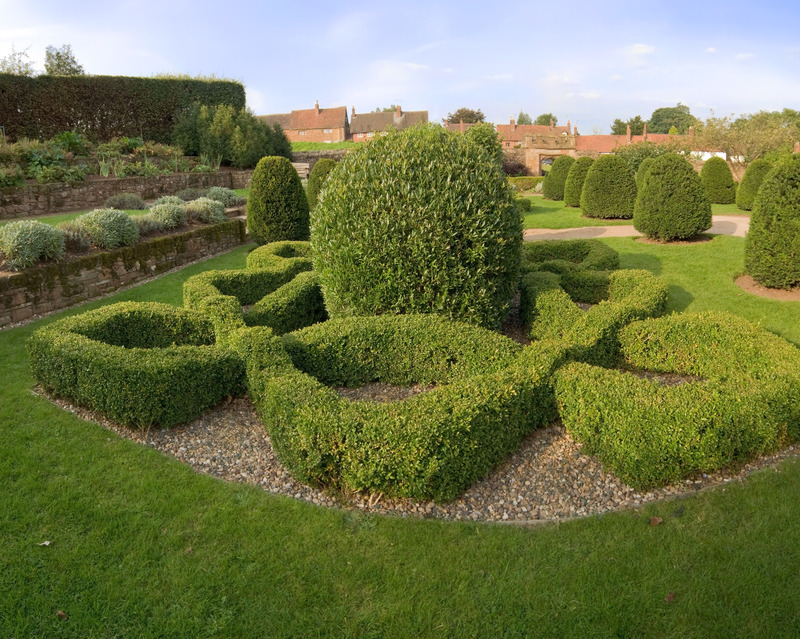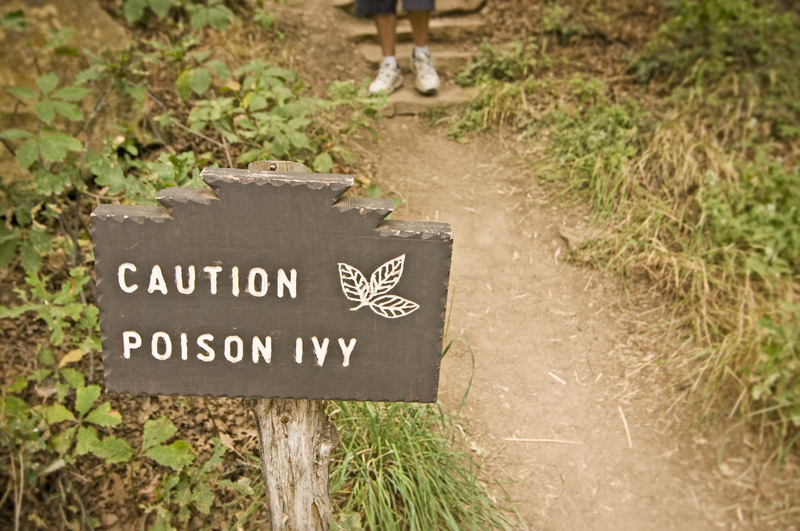Transforming Organic Waste into Fertile Soil for Greener Gardens
Posted on 06/09/2025
Transforming Organic Waste into Fertile Soil for Greener Gardens
Turning organic waste into rich, fertile soil is one of the most sustainable and cost-effective ways to nurture gardens, support a thriving ecosystem, and reduce landfill waste. Whether you're a seasoned gardener or just starting out, understanding the process and benefits of converting kitchen scraps and yard debris into compost can revolutionize your gardening approach.
Understanding Organic Waste and Its Environmental Impact
Organic waste includes anything that comes from living organisms and can naturally decompose, such as vegetable peels, fruit rinds, lawn clippings, leaves, coffee grounds, eggshells, and even paper products. When discarded in landfills, organic matter undergoes anaerobic decomposition, producing methane -- a greenhouse gas significantly more potent than carbon dioxide.
- Roughly 30% of the solid waste in landfills is organic material.
- Composting diverts organic waste from landfills, reducing harmful emissions.
- Transformed into compost, these materials can greatly improve soil health and plant productivity.
Organic Waste: More Than Just Trash
Many people view food scraps and yard trimmings as useless. However, these materials are essential building blocks for fertile soil. Properly managed, they introduce valuable nutrients back into the ecosystem, closing the loop for a healthier planet.

Why Transform Organic Waste into Soil?
Recycling organic waste is a central pillar of sustainable gardening. But how exactly does this help your garden and the environment?
Environmental Benefits
- Reduces landfill waste: Composting keeps over 100 million tons of waste out of landfills each year globally.
- Cuts greenhouse gas emissions: Composting curbs the release of methane, helping to combat climate change.
- Conserves resources: Using compost in your garden means less need for synthetic fertilizers and chemical soil amendments.
Soil Enrichment
- Improves soil texture: Compost adds organic matter, enhancing water retention and aeration.
- Feeds beneficial microorganisms: Healthy microbes break down nutrients, making them more accessible to plants.
- Supports plant growth: Compost supplies balanced, slow-release nutrients that help plants thrive.
From Waste to Wealth: The Composting Process
Composting transforms food scraps and yard waste into dark, crumbly, nutrient-dense humus that's perfect for fertilizing gardens. But how does this transformation happen?
Basic Principles of Composting
- Balance "greens" and "browns": The key is to mix nitrogen-rich materials (greens) like food scraps with carbon-rich materials (browns) such as dry leaves and straw.
- Adequate moisture: Compost should be damp, like a wrung-out sponge -- not soggy or dry.
- Oxygen flow: Turning or aerating the pile helps the breakdown process by supplying oxygen to microbes.
The Stages of Composting
- Mesophilic phase: Microorganisms start breaking down organic matter, producing heat.
- Thermophilic phase: High temperatures accelerate decomposition and destroy most pathogens and weed seeds.
- Maturation phase: The pile cools, and the compost becomes stable, dark, and rich in nutrients.
Methods for Composting at Home
There are several approaches to transforming organic waste into fertile garden soil. Your choice depends on available space, effort, and local climate.
Traditional Compost Bins
These bins, available in various types and sizes, provide a controlled environment to compost household and garden waste. Turning the pile regularly helps maintain aeration and speeds up decomposition.
Vermicomposting (Worm Composting)
Worm bins use red wigglers to break down food scraps into a nutrient-rich substance called worm castings. Worm compost is especially beneficial for houseplants and small garden beds.
Tumbler Composters
Compost tumblers allow easy turning to aerate the mix and expedite breakdown. They're compact and odor-resistant, making them excellent for urban gardeners or those short on space.
Bokashi System
This anaerobic composting technique uses a special inoculant of beneficial microbes to break down even meat and dairy in a sealed container. After fermenting, the pre-compost can then be added to your outdoor compost pile or buried in the ground for fast soil enrichment.
Getting Started: Steps to Transform Organic Waste into Garden Soil
Follow these practical steps to begin recycling your home and garden waste into fertile, organic-rich soil:
1. Select a Composting Site
- Choose a conveniently accessible spot near your kitchen or garden.
- Ensure the site is well-drained and partially shaded.
2. Gather Compostable Materials
- "Greens": Vegetable peels, fruit scraps, coffee grounds, grass clippings.
- "Browns": Dried leaves, straw, shredded newspaper, cardboard.
- Avoid meat, dairy, fats, pet waste, and diseased plants.
3. Build Your Compost Pile
- Start with a coarse layer of woody material for drainage.
- Alternate layers of greens and browns in roughly equal proportions.
- Moisten as you go -- but don't overdo it.
4. Maintain and Monitor
- Turn or aerate every few weeks.
- Check moisture levels -- add water or dry materials as needed.
- Monitor for temperature and odor: A well-managed pile should be warm and smell sweet, not rotten.
5. Harvest and Use Your Finished Compost
- Compost is ready when it's dark, crumbly, and earthy-smelling.
- Screen out any large, undecomposed bits for reuse in the next batch.
- Use the finished compost as a soil amendment, mulch, or even as homemade potting mix.
Compost Troubleshooting: Common Problems and Solutions
Even the best-managed compost piles occasionally face setbacks. Here's how to resolve typical compost issues:
1. Slow Decomposition
- Shred larger items to speed up breakdown.
- Add more nitrogen-rich greens if slow progress is noted.
- Ensure the pile stays moist and well-aerated.
2. Bad Odors
- Too wet? Add more dry, carbon-rich browns.
- Ammonia smell indicates excess greens; balance with more browns.
- Rotten odors point to anaerobic (low oxygen) conditions. Turn the pile.
3. Presence of Pests
- Never add meats, oils, or dairy.
- Bury food scraps in the center of the pile.
- Use a closed compost bin to deter animals.
Maximizing the Benefits: Using Compost for Lush, Greener Gardens
When you transform organic waste into fertile soil, the resulting compost is a powerhouse of nutrients and life. Here's how to use it most effectively:
Garden Beds
- Work compost into planting beds before sowing or transplanting.
- Use 1-2 inches of compost as a mulch to suppress weeds and conserve moisture.
Lawns
- Top-dress lawns with a thin layer of finely sieved compost each spring or fall.
Container Plants
- Mix compost with potting soil at a ratio of 1:3 for healthy, vibrant potted plants.
Trees and Shrubs
- Spread compost under the dripline, avoiding direct contact with the trunk.
Enhancing Soil Fertility Naturally: The Science Behind Compost
Compost is more than just recycled waste -- it's a living soil amendment loaded with beneficial microbes. As it decomposes, compost:
- Feeds soil microorganisms that, in turn, feed plants essential nutrients.
- Releases nutrients slowly for long-term soil health.
- Improves soil structure, porosity, and water retention.
- Buffers pH and protects plants from soil-borne diseases.
Research shows that gardens amended with compost have higher yields, enhanced plant resistance, and need fewer chemical pesticides or fertilizers. By recycling organic waste into garden soil, you're building a legacy of fertility and sustainability for generations to come.
Transforming Waste into Fertile Soil: A Global Movement
Communities, cities, and countries around the world are embracing composting programs to manage organic waste, regenerate soils, and foster greener urban spaces. From small home composters to large-scale municipal facilities, this movement is making a measurable difference.
Case Study: Urban Composting Initiatives
- San Francisco diverts over 80% of its waste via robust composting and recycling programs.
- New York City and Toronto have implemented curbside composting to support both gardens and city parks.
The Circular Economy in the Garden
Transforming organic waste into garden soil reflects the principles of the circular economy, where 'waste' becomes a resource. This shift in mindset helps us conserve resources, foster biodiversity, and create self-sustaining landscapes.

Frequently Asked Questions about Composting Organic Waste
What should not be composted?
- Meat, bones, fats, and dairy products (attract pests and slow decomposition).
- Pesticide-treated plant matter or weeds with mature seeds.
- Synthetic chemicals or plastics.
How long does composting take?
- Hot composting can yield finished compost in 2-3 months if managed well.
- Cold (passive) composting or vermicomposting may take 6-12 months.
Is compost safe for all plants?
- Fully finished, mature compost is safe for all types of gardens.
- Immature compost may rob plants of nitrogen -- ensure it's dark, crumbly, and earthy before using.
Conclusion: Embrace Greener Gardening by Recycling Organic Waste
Transforming organic waste into fertile soil for greener gardens is simple, rewarding, and essential for sustainable living. Composting not only curbs landfill pollution and greenhouse gases but also fosters healthy, productive gardens bursting with life.
Start composting today, and watch your food scraps and garden clippings blossom into the healthiest, most vibrant garden soil you've ever used! By joining the global composting movement, you're cultivating a healthier, greener future for yourself and the planet.
Turn your waste into wealth, and let your garden -- and the earth itself -- flourish.
Latest Posts
Begin Your Green Journey: 9 Essential Gardening Tips for Beginners
Designing an Engaging Space for Little Explorers
The Ultimate Guide to Growing Your Own Herb Garden

